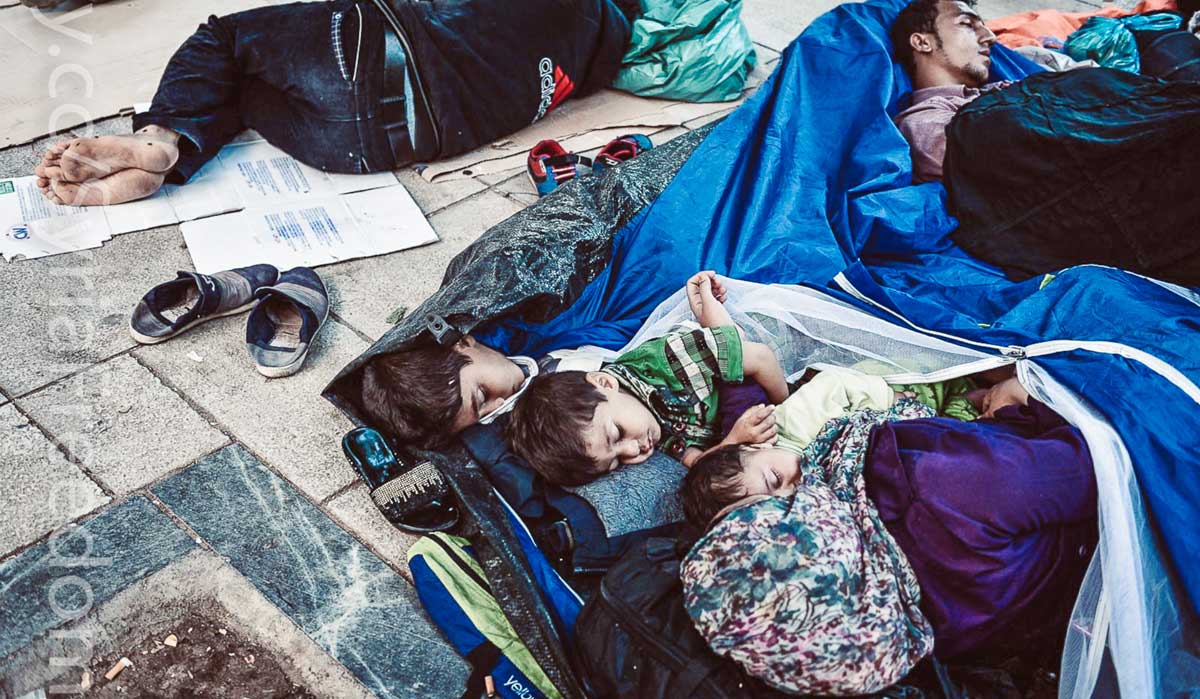Sponsoring
An Asylum Seeker
People have been offering one another sanctuary in various forms across history and throughout nations. Within the U.S. context, the Sanctuary Movement of the 1980’s arose in response to the thousands of refugees fleeing military oppression and civil war in Central America. A resurgence of this kind of formal Sanctuary in faith-based congregations is again on the rise.
What is sponsorship?
Those who are seeking asylum in the United States are usually detained and then interviewed by Immigration and Customs Enforcement (ICE) to assess their level of flight risk — in recent years, few asylum-seekers are granted bond or release from detention without a “sponsor” on record. Sponsors are U.S. citizens or legal permanent residents who are willing to submit paperwork to ICE to secure an asylum-seeker’s release and then to receive an asylum-seeker in their home upon that release.
ICE and the Department of Homeland Security (DHS) have a few specific requirements of sponsors (which include: a fixed address where they can demonstrate they have resided for a significant period of time; ability to provide asylum seeker with a safe, comfortable place to sleep; and ability/financial means to provide asylum seeker with basic necessities such as food, occasional transportation, items of clothing, etc.). Sponsors are also expected to receive mail on behalf of the asylum-seeker regarding court dates and other legal proceedings.
The Asylum-Seekers Sponsorship Project asks that sponsors make an additional commitment on top of what DHS asks of sponsors, which is to provide food, shelter, clothing, medical care, legal support, and other hospitality to asylum-seekers for at least six months, and preferably one year. Asylum-seekers are put on an “asylum clock” that determines their eligibility for a work permit following their submission of an asylum application. Here’s more on that “asylum clock” from the National Immigration Justice Center:
"The asylum clock is an electronic tracking system managed by the asylum office and the Executive Office for Immigration Review (EOIR), which tracks how many days have elapsed since an asylum applicant filed a complete asylum application (form I-589) with the asylum office or the immigration court. It can be stopped and started depending on what happens in the course of the application period. An asylum applicant becomes eligible to file for an Employment Authorization Document (EAD) 150 days after filing a “complete” asylum application and can receive an EAD 180 days after filing a “complete” asylum application."
And the crowds asked him, “What then shall we do?” And he answered them, “Whoever has two tunics is to share with him who has none, and whoever has food is to do likewise.”
Since we want to support “compas” (short for compañeros or compañeras) in getting the best possible chance at building a life for themselves in the U.S., our program asks sponsors to ensure that compas have reliable housing and basic necessities as they’re navigating the process of gaining financial independence.
Agreeing to offer housing and support for an asylum-seeker means participating in a leap of faith that runs two ways: both your household and the compa have agreed to share their lives with strangers, at least for a while, and there may be both anticipation and anxiety all the way around. Hopefully, there will also be many powerful and uplifting opportunities to experience the beauty of community, to build a relationship of care and solidarity, to learn and grow in your role as a sponsor, and to feel empowered by joining in collective resistance to policies of injustice and exclusion.
As a sponsor, you are joining a vast network of people across the country who have opened their homes to offer this particular kind of accompaniment, and who find themselves transformed in some way in the process. We hope you will feel supported and resilient as you offer this vital support through various mechanisms we’ve created, including orientation materials, training, political education sessions, and organizing support.
If you're interested in volunteering as a sponsor,
